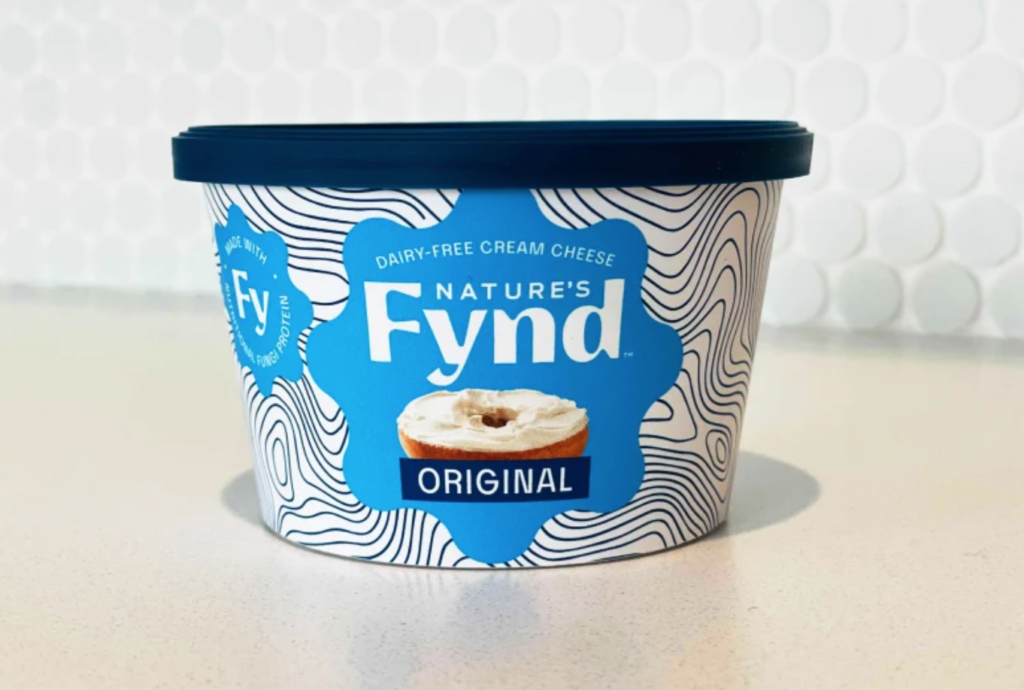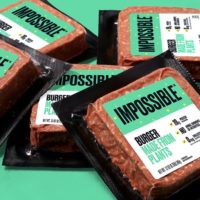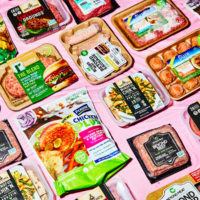
Source: Fast Company
Every week we track the business, tech and investment trends in CPG, retail, restaurants, agriculture, cooking and health, so you don’t have to. Here are some of this week’s top headlines.
Nature’s Fynd, the $150 million-backed food tech company, has launched its vegan cream cheese and meatless patties made from fungus from Yellowstone National Park. In other CPG news, the World Health Organization announced that the coronavirus could possibly be transmitted on frozen packages of food.
Consumers spent a whopping $486 billion in takeout food last year, accounting for 63% of all restaurant spending. Fast food workers around the nation are protesting for their right to a $15 minimum wage.
Note From our Team: Our hearts are with our brothers and sisters in Texas. As people struggle with food, water, power and warmth, we hope you will join us in donating money, food and supplies to help the vulnerable in the city. Check out this comprehensive Google Document for a list of ways you can help.
We need your support. Producing our newsletter takes a lot of time and resources, and we need to change our business model to keep it going. To date, we’ve funded our work through our events, sponsorships and consulting, which are all on hold due to the pandemic. If you find our newsletter to be a valuable resource, we hope you will consider making a one time or monthly contribution, so we can keep the newsletter going and free for those who can not afford a subscription fee. Whether it’s $5 or $500 every bit helps and shows us that you value our work. Not able to contribute right now? You can help by sharing our newsletter with friends and colleagues.
Check out our weekly round-up of last week’s top food startup, tech and innovation news below or peruse the full newsletter here.
1. After Raising $150M in Equity and Debt, Nature’s Fynd Opens Its Fungus for Pre-Orders – TechCrunch
The company has launched its non-dairy cream cheese and meatless breakfast patties for pre-order, made from fungus found in the wilds of Yellowstone National Park.
2. Can Frozen Food Spread the Coronavirus? – NPR
At a news conference this week, the World Health Organization made a surprising statement: The coronavirus could possibly be transmitted on frozen packages of food.
3. Consumers Spent $486B on Takeout in 2020 – The Spoon
Consumers spent $769b ordering food from restaurants last year, with takeout orders accounting for 63% of those sales.
4. Global Plant-Based Protein Market Now Worth $10.3B – Green Queen
Driven by shifting consumer trends in high-growth markets in Asia-Pacific, the researchers expect the plant-based protein market to top $15.6b within the next five years.
5. Texas Livestock Industry Reels From Storm, Outages – Wall Street Journal
Herds are threatened by low temperatures and a lack of feed, while some milk processors have had to shut down amid power outages.
6. Standard Cognition Hits $1B Valuation with $150M Investment – Grocery Dive
SoftBank Vision Fund 2 led the round. Funding will be used to scale its operations as it pursues a goal of installing its computer vision-based checkout equipment in more than 50k retail locations during the next five years.
7. Little Leaf Farms Raises $90M to Further Scale Hydroponic Greenhouse-Grown Lettuce – Food Navigator
Equilibrium Capital led the round. Funding will go towards its East Coast expansion and building out new greenhouse sites in the region.
8. Where Does Grocery Go Next with Online Fulfillment?
Arthur Chow, VP at S2G Venture’s, explains why Amazon’s early foundation may provide a clue as to why brick-and-mortar will still be needed to build a resilient grocery supply chain.
9. 5 Actions to Reboot Food Retail
We have a responsibility to all stakeholders in our supply chains to pursue deep and substantive change, starting with the social and economic issues that underlie how we grow, make, distribute and sell food. Errol Schweizer, host of The Checkout Radio and former VP of grocery for Whole Foods Market, shares 5 actions food retailers, brands and supply chain stakeholders must take to create a more fair, just and sane food system.
10. How Thrive Market, Once Upon a Farm, Omsom and Tagger Media Are Reimagining Discovery, Acquisition and Loyalty
The unprecedented events of the last year forced food brands to quickly adapt to their customer’s needs and shopping behaviors, while also navigating a rapidly changing grocery retail landscape. Founders share how they grew their businesses through new approaches to customer discovery, acquisition and loyalty.
11. Food & Ag Anti-Racism Resources + Black Food & Farm Businesses to Support
Check out our list of resources to learn about systemic racism in the food and agriculture industries. We also highlight Black food and farm businesses and organizations to support.
Our newsletter is the absolute easiest way to stay on top of the emerging sector, so sign up for it today and never miss the latest food tech and innovation news and trends, Already signed up? Share the love with your friends and colleagues!





